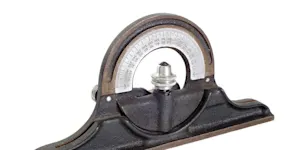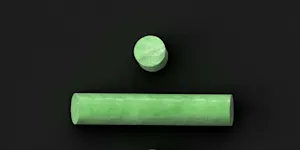What Makes This Word Tick
"Desiccate" is one of those words that sounds almost like what it means. It's all about removing moisture, leaving something high and... dry! Whether we're talking about the desert, dried herbs, or perhaps how this past summer felt to your lawn, "desiccate" captures that essence of thorough dryness.
If Desiccate Were a Person…
If "desiccate" were strutting around as a person, they'd definitely be one of those efficient sorts—probably wearing a crisp white lab coat, holding a hairdryer in one hand, with a sunhat on their head. Always ready to soak up the moisture, they'd make dependable company at a beach picnic, ensuring everything stays dry and fresh!
How This Word Has Changed Over Time
"Desiccate" has its roots all the way back in Latin with "desiccare," meaning to dry thoroughly. Through medieval Latin and then French, this word has stayed impressively faithful to its original meaning, standing the test of time without weathering away its core dryness.
Old Sayings and Proverbs That Use Desiccate
While it might be tricky to find age-old proverbs using "desiccate," the spirit of the word can be found in expressions involving dried out or parched things. Think about "as dry as a bone"—a phrase that captures the essence without using the precise term.
Surprising Facts About Desiccate
Here's a surprising tidbit: "desiccate" has a medical side! In medical terms, desiccation can refer to drying out tissues or removing moisture without causing harm. Perfect for those who need to dry things up in a scientific setting!
Out and About With This Word
When you're cooking or gardening, you're rightly within the world of "desiccate." Whether you're sun-drying tomatoes or preparing herbs for winter, there it is, sneaking into everyday chores—with a fancy twist!
Pop Culture Moments Where Desiccate Was Used
While "desiccate" has yet to headline any pop songs, you'll find it comfortably nestled in a science fiction or adventure flick where environments turn desolate and arid. Next time you're watching "The Mummy," listen for the need to desiccate those pesky cursed scrolls.
The Word in Literature
"Desiccate" fits right alongside imagery in literature that deals with barren landscapes or forgotten corners of a world. Picture it in the works of Ray Bradbury when describing the Mars landscape, or perhaps in a Cormac McCarthy novel detailing an unforgiving summer.
Moments in History with Desiccate
Think Dust Bowl of the 1930s—a time when "desiccate" could vividly capture the dryness of the era's farmland. Farmers and families battled against the parched earth, an era as dry and cracked as any "desiccate" could describe.
This Word Around the World
In other languages, the idea of "desiccate" exists but might not roll off the tongue with quite the same flair. In Spanish, you might hear "desecar," while in Italian, it's "essiccare." No matter the language, it means to dry thoroughly until no moisture remains.
Where Does It Come From?
"Desiccate" originates from the Latin "desiccare," meaning to dry thoroughly—an apt root for a word filled with arid connotations. Its transition through languages stayed loyal to its essence, never losing its dryness.
How People Misuse This Word
Some might use "desiccate" when they mean "dehydrate," but there's a subtle difference. "Desiccate" often implies a more thorough, sometimes artificial drying, compared to the natural drying process implied by "dehydrate."
Words It’s Often Confused With
Dehydrate: Both involve drying, but "desiccate" is thorough, often in a controlled setting, while "dehydrate" can be natural.
Arid: A condition of dryness, but more widely used for climates rather than processes.
Evaporate: Involves moisture leaving, but it's more about the process rather than the end state of dryness.
Additional Synonyms and Antonyms
Other words that come to play with "desiccate" include "parch" and "sap" as synonyms; for antonyms, think "moisten" or "dampen." Handy for when you need to evoke a change or maintain the status quo of moisture.
Want to Try It Out in a Sentence?
Here's a challenge for your next letter or conversation: "After laying out for days in the blazing sun, the once fresh bouquet of roses had all but desiccated, every petal as brittle as thin wafers."
















